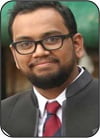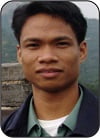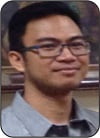Predicting the Priorities of Multicultural Education in a Philippine Teacher Education Institution: An Exploratory Study
Abstract
ABSTRACT: Multicultural education is a contemporary pedagogy, which prepares academic institutions to combat discrimination and oppression. It also aims to maximize learning by creating an environment that is safe and productive. International academic institutions as well as national institutions must take multicultural pedagogy as the best perspective in handling the reality of a pluralistic society. Multicultural education is quite literally the pedagogy of the oppressed. It is a pedagogy that was born out of the struggle of the oppressed sectors in the West such as the African-Americans, women, homosexuals, religious minorities, atheists, indigenous people, the differently-abled, and others. This is the embodiment of the dreams of those who fought for equality and respect. Since many forms of oppression are still existent in various societies, multicultural education continues to receive support from education sectors in many free countries. This paper describes the diversity of learners in a Philippine Teacher Education institution according to classifications of race, ethnicity, class, religion, and gender with the goal of predicting the priorities of multicultural education. The project started with profiling students using a specialized tool beyond demographics. The diagnostic tool identified categories significant for multicultural education. From the demographic, the researchers analyzed various aspects of multicultural education. The researchers identified the levels of diversity and made necessary recommendations needed for multicultural education.
KEY WORDS: Multicultural education, race, ethnicity, class, religion, gender, contemporary pedagogy, diversity of learners, Philippine Teacher Education institution, and levels of diversity.



About the Authors: Krizna Rei M. Palces, Ph.D., Prof. Arthur S. Abulencia and Prof. Wensley M. Reyes are the Lecturers at the Faculty of Behavioral and Social Sciences PNU (Philippine Normal University), Taft Avenue, Manila 1000, the Philippines. For academic interests, the author can be contacted via e-mail at: abulencia.as@pnu.edu.ph
How to cite this article? Palces, Krizna Rei M., Arthur S. Abulencia & Wensley M. Reyes. (2015). “Predicting the Priorities of Multicultural Education in a Philippine Teacher Education Institution: An Exploratory Study” in EDUCARE: International Journal for Educational Studies, Vol.8(1) August, pp.63-72. Bandung, Indonesia: Minda Masagi Press and UMP Purwokerto, ISSN 1979-7877.
Chronicle of the article: Accepted (June 4, 2015); Revised (July 6, 2015); and Published (August 25, 2015).
Full Text:
PDFReferences
Bagares, Romel Regalado. (2003). “Re-Configuring Our Social Imaginary: A Rightful Place for ‘God-Talk’ in the Filipino Public Sphere”. Available also online at: http://pcij.org/blog/wp-docs/Bagares_Church-State_separation.pdf [accessed in Manila, Philippines: 16 June 2015].
Banks, J. & C. McGee Banks [eds]. (2010). Multicultural Education: Issues and Perspectives. USA [United States of America]: John Wily and Sons, seventh edition.
de Charentenay, Fr. Pierre. (2013). “The Dilemma of Multiculturalism: Blueboard by Fr. Pierre de Charentenay, S.J.”. Available online also at: http://www.admu.edu.ph/news/ls-research-updates/dilemma-multiculturalism-blueboard-fr-pierre-de-charentenay-sj [accessed in Manila, Philippines: 16 June 2015].
Gorski, P.C. et al. (1999). “A Brief History of Multicultural Education”. Available online also at: http://www.edchange.org/multicultural/papers/edchange_history.html [accessed in Manila, Philippines: 16 June 2015].
Kassian, Mary. (2012). “To Flirt or Not to Flirt”. Available online also at: https://www.reviveourhearts.com/true-woman/blog/to-flirt-or-not-to-flirt/ [accessed in Manila, Philippines: 16 June 2015].
Limbago, Czen. (2015). “Is Homosexuality Generally Frowned Upon in the Philippines?”. Available online also at: https://www.quora.com/Is-homosexuality-generally-frowned-upon-in-the-Philippines [accessed in Manila, Philippines: 16 June 2015].
“Philippines Officially Enacts Legislation for Gender Equality”. Available online also at: http://www.unifem.org/news_events/story_detailfab5.html [accessed in Manila, Philippines: 16 June 2015].
“Philippine Participation at the National Multicultural Festival 2013”. Available online also at: http://www.philembassy.org.au/philippine-participation-at-the-national-multicultural-festival-2013.html [accessed in Manila, Philippines: 16 June 2015].
“Philippines Introduces Gender Equality Law”. Available online also at: http://www.figo.org/content/philippines-introduces-gender-equality-law [accessed in Manila, Philippines: 16 June 2015].
“RA (Republic Act) No.8371: The Indigenous People Rights Act of 1997”. Available online also at: http://opapp.gov.ph/resources/indigenous-peoples%E2%80%99-rights-act-1997 [accessed in Manila, Philippines: 16 June 2015].
Sarino, V.L. (2012). “A Critical Appraisal of Multicultural Awareness in Higher Education Institutions in the Philippines: Towards a Framework for Equity Pedagogy” in LICEJ: Literacy Information and Computer Education Journal, 2(2).
“Understanding Best Practices in MTB-MLE in the Philippines”. Available online also at: http://actrc.org/projects/understanding-best-practices-in-mtb-mle-in-the-philippines/ [accessed in Manila, Philippines: 16 June 2015].
Zuñiga VI, R.C. (2010). “Multicultural Education: Introduction”. Available online also at: http://chamzun.blogspot.com/2010/09/multicultural-education-introduction.html [accessed in Manila, Philippines: 16 June 2015].
EDUCARE: International Journal for Educational Studies. Ciptaan disebarluaskan di bawah Lisensi Creative Commons Atribusi-BerbagiSerupa 4.0 Internasional
